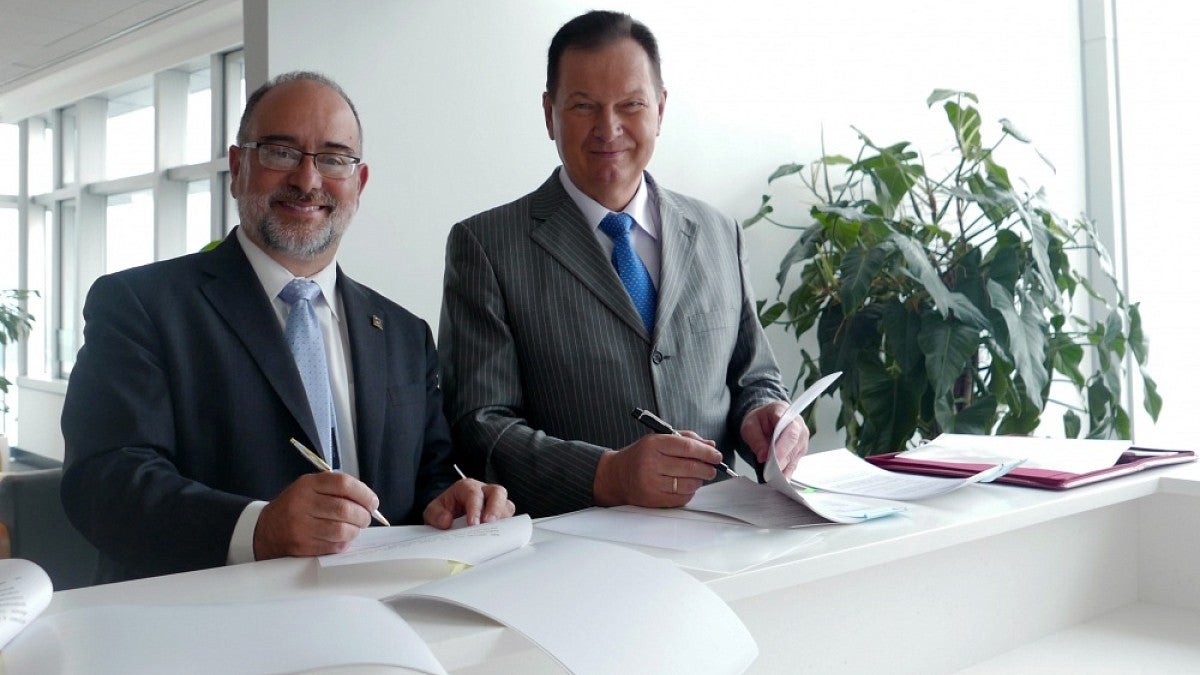The University of Oregon has signed an agreement with Far Eastern Federal University in Vladivostok for the UO’s first international student exchange program in Russia.
The program enables students from both universities to study at the other institution and gain credits toward a degree at their home institution. The agreement was signed by UO Vice Provost for International Affairs Dennis Galvan and Russian counterpart FEFU Vice President for International Affairs Vladimir Kurilov.
Eric Benjaminson, senior advisor for global engagement in the UO Office of International Affairs, brokered the agreement, which capitalizes on the many similarities between the two institutions.
“The partnership with Far Eastern Federal University should prove to be advantageous and builds on common teaching and research priorities in both of these Pacific Rim universities,” Benjaminson said. “Separately from the exchange agreement, we are also going to have professors in the law school and graduate students do visiting teaching at the partner institution.”
Both universities have strong undergraduate and graduate programs in marine biology, Russian language and literature, economics, natural sciences, architecture and education, to name a few areas in common.
Kristie Gibson, director of the master of law program at the UO School of Law, will develop collaborations between law students and scholars from both universities via student and faculty exchange programs, conferences, webinars, workshops, short-term study abroad programs and English-language training for Russian faculty.
“The exchange program through the law school gives students a unique comparative perspective between U.S.- and Russian-based law,” explained Gibson. “I have confidence students will benefit from being able to create ties between or recognize differences of the two systems of law.”
Located on the edge of Russia’s Pacific Coast, FEFU has a student body of 41,000, including 28,000 post-bachelor, 500 doctoral students, and about 500 international students.
The two universities are both members of the Association of Pacific Rim Universities, a network of 45 Asian-Pacific research universities. APRU membership and collaboration facilitated initial contact and the development of this new partnership.
—By Chris Larsen, Office of International Affairs


